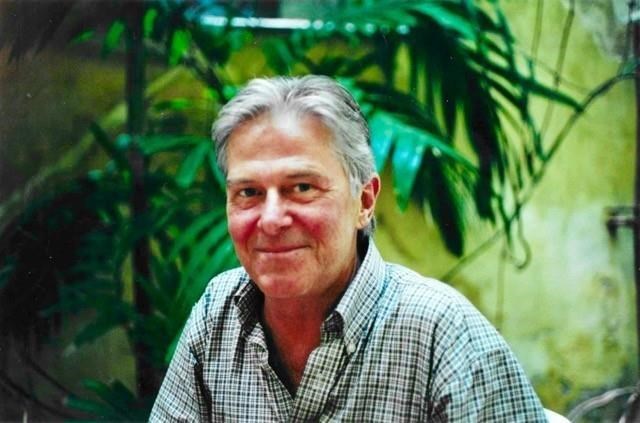MONTREAL — For generations of Quebec viewers, the bumbling, doughnut-loving cartoon dad Homer Simpson didn't speak with the American accent of voice actor Dan Castellaneta, but rather the Quebecois lilt of Hubert Gagnon.
Gagnon died of cancer on Sunday at the age of 73.
He was remembered on Monday as a humble and generous man who bore little resemblance to the character he voiced on "The Simpsons," but still managed to make the role his own within the strict confines of Quebec's French dubbing industry.
Gagnon acted on stage and in television in addition to voice acting, where he dubbed the voices of many Hollywood stars including Robert De Niro, Mel Gibson, Richard Gere and Nick Nolte into French.
But he was best known for his work on "The Simpsons," where he imbued the role of Homer with a particular Quebecois flair for 27 years, before stepping down in 2017 for health reasons.
Natalie Hamel-Roy, a Quebec voice actor and director, said she always found it funny that someone as "charming, polite and refined" as Gagnon was asked to play the boorish, crude Homer.
"It was pretty surreal that he was asked to play a character so little like him, because Homer Simpson is not subtle, so egotistical," she said in a phone interview.
Nevertheless, Hamel-Roy said, Gagnon excelled — possibly because he was able to instinctively understand how Homer can be lovable despite his flaws.
"Hubert was an appealing person, and he knew how to make it an appealing character," she said.
Hamel-Roy knew Gagnon through decades of acting jobs, including "The Simpsons." But she also directed him for five years when he voiced the lead character on the Canadian drama series "Da Vinci's Inquest."
She remembers him for his willingness to take direction, his kindness to newcomers in the field, and his skill for being able to convey an action only through voice, which became known as a "Gagnonerie" in his honour.
She believes that while Gagnon might have been nothing like Homer Simpson, he enjoyed the sense of humour and the rare chance to be recognized, in a field that by definition requires an actor to disappear.
Johanne Leveille, who voices the character of Bart on the show, said Gagnon was well suited for the challenges of the role.
"Homer is a complicated character, because in one sentence he can have three different intentions, from joy to anger to sadness in the same sentence. And frankly Hubert succeeded in doing it in a magic way," she said in a phone interview.
But while the American cast has the benefit of being able to speak at their own rhythm, a voice actor must synchronize each word and syllable to something that's already been drawn for someone else.
"The Simpsons," which premiered in 1989, is a satirical look at quintessential American middle class life, as embodied by the middle-class title family. But as the show has been dubbed into multiple other languages, each version has taken on its own distinctive flair.
Leveille said that while Gagnon and the rest of the cast were originally chosen because they were "the most identical to the original," that shifted slightly over time.
"Over the course of the years, we managed to make it a little more ours," she said. Gagnon, too, became "a little less a copy of the original, in his manners, his way of doing," despite being inspired by the American version, she believes.
The Quebec version also takes some liberties with the script, inserting local sayings and places, and swapping out some celebrity references to Quebec public figures.
Hamel-Roy believes the show lends itself well to this kind of tailoring, noting that the writers makes a point of choosing a generic setting with no precise geographical markers.
Much like the cartoon Simpsons, Leveille said the cast of the Quebec show have become a tight-knit family over the last 30 years. And while Gagnon wasn't much like Homer, that love of family was one thing they shared, she said.
"Homer Simpson deeply loves his family, and Hubert loved profoundly as well," she said. "He loved his spouse, he loved his friends, so they had that in common."
This report by The Canadian Press was first published June 8, 2020
Morgan Lowrie, The Canadian Press



